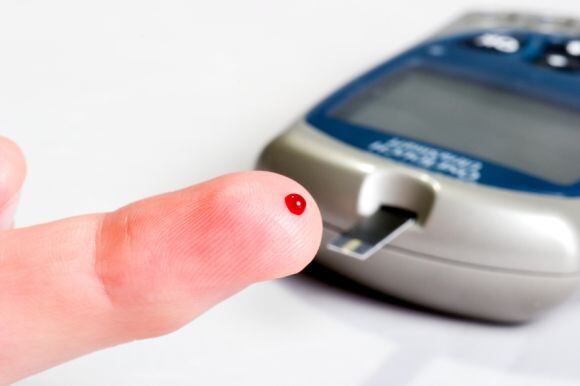Should they focus on cutting sugar? Use more complex carbs? Experiment with a new wave of natural ingredients claimed to curb blood sugar spikes? And if so, how should they market these products? Low GI? Sustained energy? For 'healthy blood glucose'?
Alternatively, should they avoid talking about blood sugar and diabetes altogether given that dietary guidelines for people with diabetes and pre-diabetes (elevated blood sugar) are the same as for the general population (click here) and consumers struggle with the concept of ‘healthy blood sugar’ anyway?
To address these questions, FoodNavigator-USA spoke to experts in nutrition and marketing to get their perspective on where the opportunities lie.
Datamonitor: ‘Blood glucose management’ concept does not resonate with the general public yet
First, we caught up with Datamonitor innovation insights director Tom Vierhile, who observed that terms such as ‘blood glucose’ are rarely used in new product launches.
Meanwhile, he said, “It isn’t clear that foods that help keep blood glucose levels healthy would necessarily provide benefits above and beyond simply cutting back on calories in general, and improving the quality of the diet.”
The Tom Hanks effect?

While diabetics are most likely to be interested in regulating blood glucose, he noted, “I am not sure they are necessarily interested in limiting their field of vision to products specifically tailored to their medical condition.
“The ‘blood glucose management’ concept just does not resonate with the general public yet. In the US, about 0.5% of new food and non-alcoholic beverages are making a low GI claim but it is not increasing in usage.
“Even the more common type 2 diabetes is still not top-of-mind with many consumers, although that is changing. The recent disclosure by Tom Hanks (joining Paula Deen, among others) that he suffers from type 2 diabetes may help put consumers into more of a prevention versus treatment mindset concerning the issue.”
What is far more likely is the gradual demonization of products that are high in sugar

He added: “I think what is far more likely is the gradual demonization of products that are high in sugar. According to Datamonitor Consumer’s 2013 Global Consumer Survey, 55% of consumers said they are trying to limit sugar intake.”
As for the recently approved (highly) qualified health claim for whole grains and reduced risk of type 2 diabetes (click here), the wording will “resonate with law students and budding wordsmiths, but sounds too much like a disclaimer at the end of a car ad than any kind of endorsement that may change consumer behavior”, predicted Vierhile.
It isn’t really clear that consumers see view a ‘blood sugar spike’ as a major issue to contend with
So what does he think of natural ingredients that can regulate potential spikes in blood sugar?
They sound promising, said Vierhile, although it “isn’t really clear that consumers see view a ‘blood sugar spike’ as a major issue to contend with”.
Meanwhile, you have to wonder whether consumers “would simply be better off avoiding sugar-laden products to begin with”, he added.
“It is more plausible and likely that consumers will simply avoid the offending foods and beverages in the first place, than seek out exotic product solutions that would require an extensive amount of advertising dollars to explain and support.”
Lori Colman: ‘Talk of blood glucose and glycemic index seem way too medical food-ish’

Next we picked the brains of Lori Colman, co-CEO at branding and marketing agency CBD Marketing, who observed that “there are plenty of healthy foods to consume that will not lead to diabetes” which are “primarily unprocessed and therefore, not an opportunity for food manufacturers to ‘tap into’ ”.
As for consumers that have not yet got diabetes or pre-diabetes, most “would rather cross that bridge if they come to it rather than worry about prevention”, she pointed out.
However, there is always more room for education by food manufacturers or retailers (nutritionists as shopping assistants, shopping lists, apps for condition specific eating), she said.
“I would love to have a ‘safe for diabetics’ stamp on products that are minimally processed. But that’s a claim that will be hard to get through!”
Looking at messaging, “sustained energy has been usurped by energy drinks; fuller for longer, by fiber”, she claimed, while “talk of blood glucose and glycemic index seem way too medical food-ish”.
Jeff Hilton: People assume that since diabetes is a medical condition, they can't take control of managing it without a doctor’s permission

Jeff Hilton, founder of branding and marketing agency BrandHive, says it is interesting to contrast the success of the gluten-free market with the ‘healthy blood glucose’ market - given that far more people are affected by diabetes and pre-diabetes than celiac disease or gluten sensitivity.
However, it was not really surprising, he said: “I think being labeled as ‘diabetic’ is a negative burden to bear as opposed to carb-cutting or eating gluten free as a healthier alternative. Diabetes means that something is seriously wrong with you and we don't like to admit or acknowledge that.
“Plus people assume that since diabetes is a defined medical condition, that they can't really take control of managing that without a doctor’s permission and assistance.”
As for messaging, he said, “consumers don't get Low-GI, and since we can't talk about diabetes per se, the only relevant claim has been ‘helps maintain a healthy blood glucose level’.
Whole grain diabetes claim: ‘Manufacturers would use anything that FDA allows them to say no matter how ‘qualified’ it is’
As for the new whole grains qualified health claim, it’s better than nothing, he said. “This is such a challenging market segment that I think manufacturers would use anything that FDA allows them to say no matter how qualified it is.”
As for natural ingredients that can curb blood sugar spikes, he is more positive than Colman. “Let's be honest; most consumer love a ‘pill’ or ‘magic ingredient’ which allows them to do what they want and eat what they please but not suffer the consequences.
“So anything which could make formerly off-limit foods permissible has great potential. Not an easy proposition to explain or sell, however.”
Jaime Schwartz: There are many ideal dietary patterns, but no individual foods

Next we talked to Jaime Schwartz, MS, RD, a registered dietitian and Vice President at leading PR and marketing agency Ketchum, who was skeptical about foods specifically formulated to help maintain healthy blood glucose levels.
“For those diagnosed with prediabetes, the first line of defense in preventing diabetes is to lose weight, not to eat specially formulated products,” she remarked.
“There is also a misconception among many individuals with diabetes and prediabetes that they need to focus on sugar free foods and they look at labels for grams of sugar rather than carbs.”
Meanwhile, she added, “Insulin resistance, the underlying problem of type 2 diabetes, starts long before blood glucose levels even reach the prediabetes range. There are no common tests to look for early insulin resistance, except in the research setting. There are no ideal foods anyway to keep blood glucose levels in a healthy range.
“There are many ideal dietary patterns, but no individual foods. There is no reason to be concerned with blood glucose levels unless one has diabetes or insulin resistance.”
Beverly Murray: In our zeal to have our cake and eat it too, we are once again taking a path that is not necessarily encouraging an informed and truly healthy diet

Last but not least we spoke to Beverly Murray, founder of branding agency R+M, who said that 'healthy blood glucose' was probably easier to understand - and more positive - than 'low-GI', which was "unnecessarily complex" for consumers to get their heads around.
Meanwhile, supplements that mitigate the effects of carb-containing foods might have commercial potential, but should perhaps be treated with caution.
“Of course in our zeal to have our cake and eat it too (perhaps literally), we are once again taking a path that is not necessarily encouraging an informed and truly healthy diet.”
